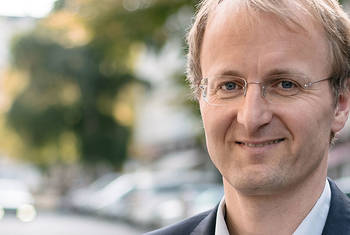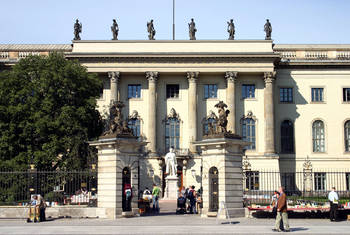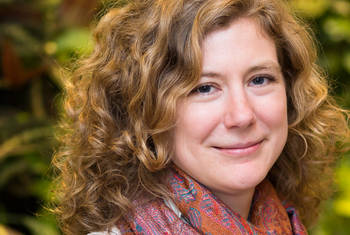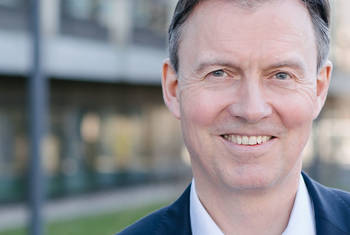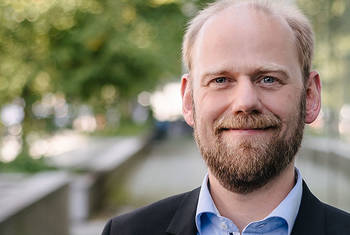Georg Weizsäcker What Is the Economic Relevance of Human Indecisiveness?
Georg Weizsäcker is Professor of Applied Microeconomics at Humboldt University, Berlin and Dean of Graduate Studies at the German Institute for Economic Research (DIW Berlin). Having completed his PhD at Harvard University (2004), Weizsäcker has also held professorships at University College London and at the London School of Economics. His research interests include experimental economics, game theory and decision theory. Recipient of the Hermann Heinrich Gossen Award in 2017, since 2010, Weizsäcker has been an Advisory Editor to the journal Games and Economic Behavior.
Area of Research
Microeconomics, Experimental Economics, Financial Decision Making, Game Theory, Decision Theory
since 2017
Dean, Graduate Center (DIW GC)
German Institute for Economic Research (Deutsches Institut für Wirtschaftsforschung DIW)
since 2012
Professor
Humboldt University of Berlin (Humboldt-Universität zu Berlin) (more details)
Economics Department
since 2009
Faculty Member
German Institute for Economic Research (Deutsches Institut für Wirtschaftsforschung DIW)
2016-2017
Visiting Professor
Stanford University
Economics Department
2012-2017
Member of the Scientific Advisory Board
Potsdam‐Institute for Climate Impact Research (PIK)
2010-2013
Professor
University College London
Department of Economics
2004-2009
Lecturer
London School of Economics and Political Science
2004
Ph.D. in Business Economics
Harvard University
2004
M.A.
Harvard University
1999
- Games and Economic Behavior, Advisory Editor (since 2010)
- Experimental Economics, Member of the Editorial Board (since 2009)
- Economic Journal, Associate Editor (2008-2017)
- Review of Economic Studies, Director (2013-2016)
- Review of Economic Studies, Member of the Editorial Board (2005-2016)
- Management Science, Associate Editor (2009-2013)
Fellowships
- Research Fellow, Institute for the Study of Labor, IZA (2004-2011)
- Research Fellow, Centre for Economic Learning and Social Evolution, ELSE (2004-2005, 2006-2010)
- Doctoral Fellowship, Harvard University (1999-2000, 2001-2004)
- Fulbright Fellowship (1997-1998)
Prizes
- Hermann-Heinrich-Gossen-Preis, Verein für Socialpolitik (2017)
- Einstein Visiting Fellowship (2019-2021)
- Collaborative Research Center (Sonderforschungsbereich) Transregio, “Rationality and competition: The economic performance of individuals and firms”, DFG (2017-2020)
- European Research Council Starting Grant, „Investors’ expectations: measuring their nature and effect“ (2011-2016)
 © Heike Zappe/ HU Berlin
© Heike Zappe/ HU Berlin

Humboldt University of Berlin (Humboldt-Universität zu Berlin)
Berlin, GermanyIn 1810, Wilhelm von Humboldt’s idea of founding a new type of university became a reality. The combination of teaching and research, academic freedom and the comprehensive education of students was not only a model for the Prussian university but for the world as well. And a new era for universities and academic research began. Each year, over 6,000 people decide to study at Humboldt-Universität located in the heart of Berlin. There are few other places where you can choose from 190 degree programmes, from Agricultural Science to Asian Studies. The university is first and foremost dedicated to fundamental research. Humboldt-Universität’s strengths in particular are in research on antiquity, history, philosophy, and quantitative economics as well as the life sciences, especially theoretical biology, neurology and immunology. It also has strengths in mathematics, material and optical sciences, and climate and sustainability research. These key strengths are shaped by twelve collaborative research areas, nine graduate research clusters and eleven interdisciplinary centres. Three integrated research institutes strongly connect and coordinate different research areas while developing focused topics for the future. (Source: Humboldt-Universität zu Berlin)
Map
When faced with difficult decisions, people often demonstrate a preference for randomization, for the toss of a coin for example. In this video, GEORG H. WEIZSÄCKER explains that economic decision theory struggles to accommodate this phenomenon and he explores its consequences, focusing on the German university application system. Weizsäcker finds that, for significant numbers of applicants, the propensity to avoid decisions regarding their preferred university course has potentially detrimental effects. The research provides important insight not only into the consequences of indecisiveness in the system analyzed but also for decision making more broadly e.g. by consumers, in business organizations and in the medical sphere.
LT Video Publication DOI: https://doi.org/10.21036/LTPUB10690
Flipping a Coin: Evidence from University Applications
- Nadja Dwenger, Dorothea Kübler and Georg Weizsäcker
- Journal of Public Economics
- Published in 2018


